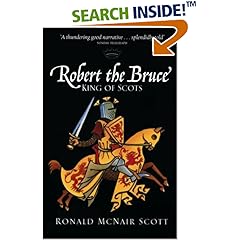For the second time in just over 2 years,
the Supreme Court by a narrow 5-4 ruling has revealed to us that we have a constitutional right that (1) we already knew we had, (2) the Constitution plainly states we had, and (3) 200-plus years of a tradition of individual gun ownership in this country attests we had.
Item number (3) above, a guiding principle long championed by Justice Scalia in the application of so-called "Substantive Due Process" jurisprudence, is
KEY to the majority's holding in
McDonald v. Chicago.
Especially read Justice Scalia's concurrence, which eviscerates Justice Stevens' dissent and the "judge-as-enlightened-philosopher-king" mentality that undergirds the philosophy and jurisprudence of the judicial left.
It remains troubling, however, that constitutional protections such as the 2nd Amendment hinge on the swing of one Justice's vote.
UPDATEI think the approach of my favorite Justice and personal judicial hero, Justice Thomas, which relies on the 14th Amendment's "Privileges and Immunities Clause" rather than the 14th Amendment's "Due Process Clause", is probably the "correct" one as a historical matter and from both an originalist and textualist standpoint.
Unfortunately, that ship has sailed, and we're stuck with having to limit, if we can't outright undo, the damage wrought by an expansive and substantive reading of the Due Process Clause. Given the parameters within which the modern Court is working, I believe the preferable approach from a jurisprudential (as opposed to historical) standpoint is to follow Justice Scalia's lead in reading the substantive/fundamental "liberty" component of the Due Process Clause - i.e. those rights “implicit in the concept of ordered liberty” - as one to be interpreted and applied in light of our nation's long-established traditions.
Hopefully, one day, Justice Thomas' constitutionally correct views will rule the day.
UPDATE #2Another interesting component about today's ruling is that we're bound to hear from leftist commentators about the Court's "activist" ruling. "Activist" because the Court acted to strike down a locality's gun control law. But read the opinions (including the concurrences) of those who voted in the majority and then read the dissenting opinions.
Which ones read like the opinions of Justices interested in limiting the judicial role in creating Constitutional rights out of whole cloth, and which ones read like the opinions of Justices with a prediliction for picking and choosing which rights are "acceptable" for constitutional protection (even if found NO WHERE in the Constitution) and which are not (even if they ARE found in the Constitution)?
If the word "activist" means anything, it certainly applies more to the latter than it does to the former.
But this is nothing new to the constitutional debate over the incorporation of the Bill of Rights against the states. I encourage you to read the history of the incorporation controversy in the Supreme Court, especially the debates between the late Justices Black and Frankfurter. Throughout most of their tenures on the Court, it was Black who was viewed as the "liberal" and the "activist" and Frankfurter as an almost reactionary "conservative". Black pushed for "full incorporation" of the Bill of Rights; Frankfurter opposed him.
Yet, Black's purpose for pushing for full incorporation was, in fact, one of judicial restraint. A huge opponent of the "Substantive Due Process" jurisprudence that held sway on the Court in the 1910s-1930s, Black sought to limit the role of the Court in picking and choosing which rights were deemed "fundamental" to ordered liberty and which were not, and saw full incorporation as one means of accomplishing his goal of protecting the constitution from judicial interference.
Previous Pro Ecclesia posts on this subject:
Dale Price on Heller (and Tony's Temper Tantrum)Supreme Court Tells Us What We Already KnewLabels: Constitutional Jurisprudence, Guns, Judiciary, Law, Supreme Court





















































.jpg)






























